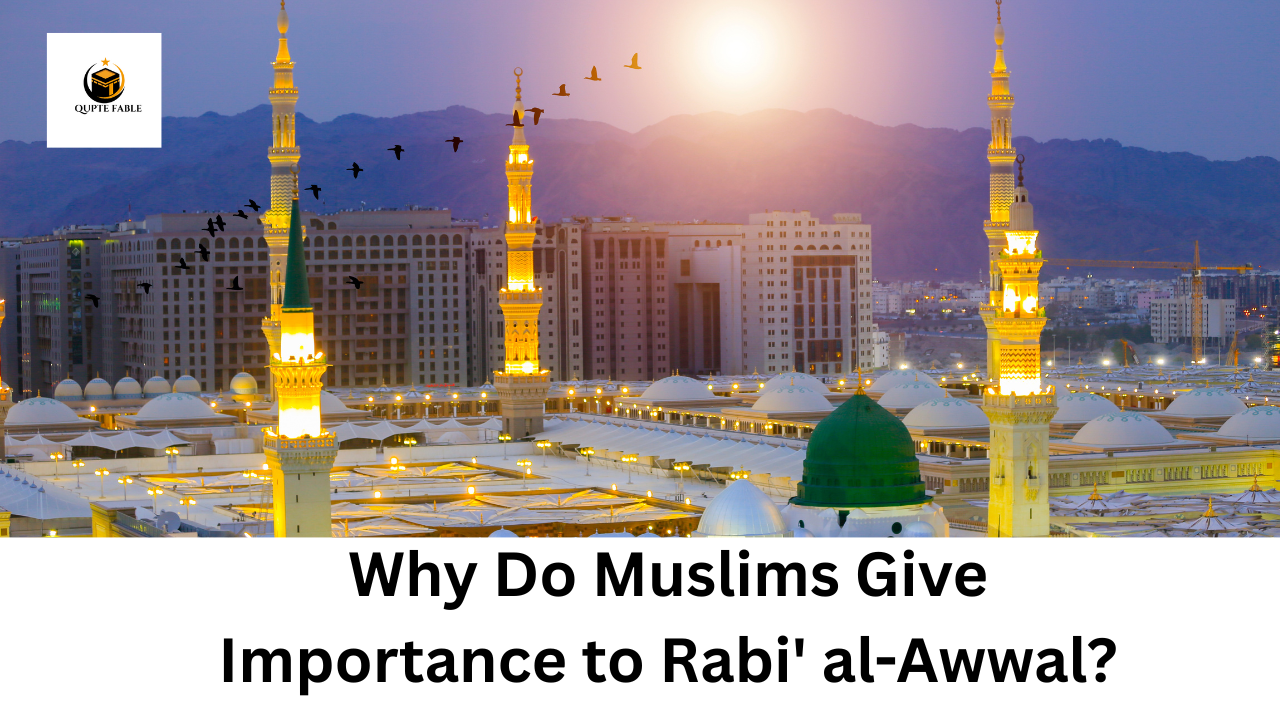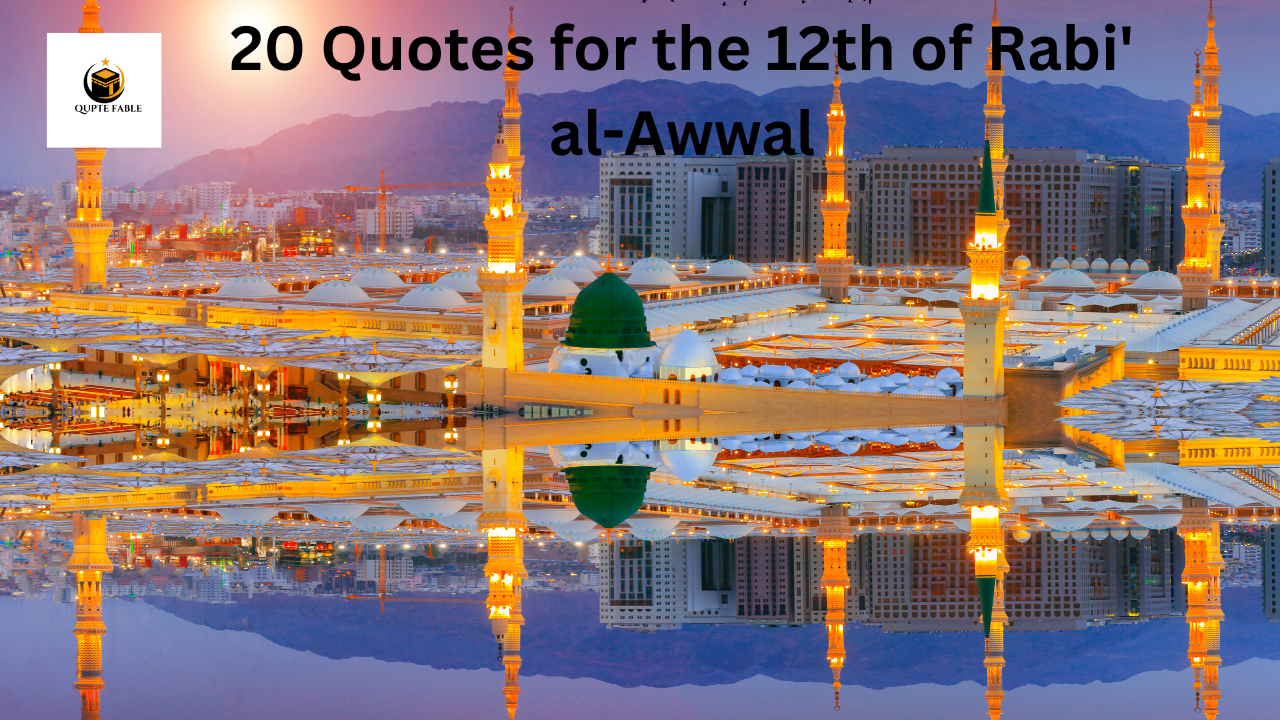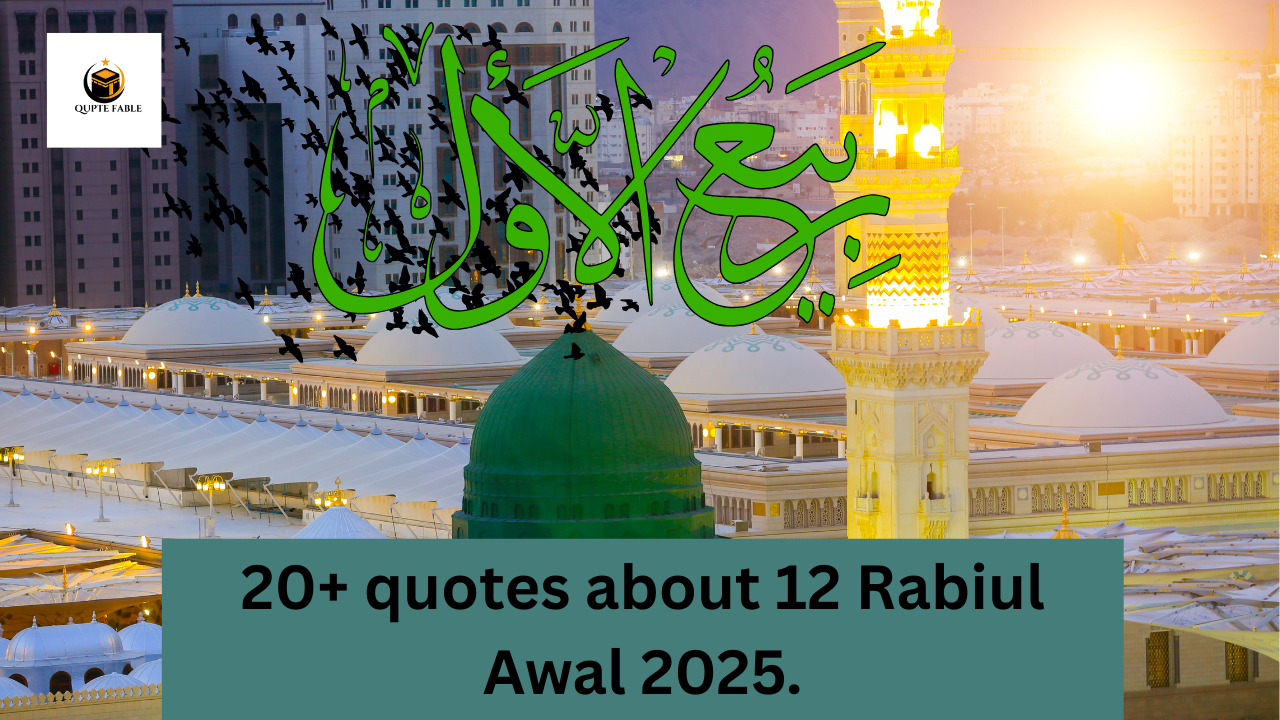12 Rabiul Awal, as the generally acknowledged anniversary of the Prophet Muhammad’s (peace be upon him) birth, is the twelfth day of Rabi’ al-Awwal, a day of great religious significance in the Islamic calendar. Muslims around the world celebrate this day, known as Eid Milad-un-Nabi, as a time for great joy and introspection. It honours the coming of the last Messenger, whose life and teachings would fundamentally change the path of human history and introduce a message of moral excellence, compassion, and monotheism that still serves as a guide for more than a billion believers today.
The idea of celebrating the Prophet’s birth on this particular date is viewed differently throughout the Muslim world, even though all Muslims share a strong love for him. For many, it is a fortunate opportunity to express appreciation and happiness through charity, poetry, gatherings, and sharing their life story (Seerah). Others see certain yearly celebrations as an innovation, with the emphasis still being on living out his teachings every day. The day is a potent reminder to reconnect with his sublime character and timeless guidance, regardless of these variations in practice.
What is Rabi’ al-Awwal?
Rabi’ al-Awwal is the third month in the Islamic (Hijri) calendar. The name translates to “the first spring”, indicating its position in the pre-Islamic solar calendar. For Muslims, it is a month of immense historical and spiritual significance, primarily because it is the month in which the Prophet Muhammad (peace be upon him) was born.

Why Do Muslims Give Importance to Rabi’ al-Awwal?
Muslims give importance to Rabi’ al-Awwal because it is the birth month of the final Messenger of Allah, Prophet Muhammad (ﷺ). His birth marked the greatest mercy and blessing for all of humanity. The month provides an opportunity to reflect on his life, his character (Seerah), his teachings (Sunnah), and the profound impact of his message, which brought light and guidance to a world immersed in darkness and ignorance.

Why Do Muslims Celebrate the 12th of Rabi’ al-Awwal
The celebration of the 12th specifically is based on the widely held belief among historians and scholars that the Prophet Muhammad (ﷺ) was born on this day in the Year of the Elephant (570 CE). This day is known as Eid Milad-un-Nabi.
It is important to note that the concept of celebrating this day is a matter of theological difference within the Muslim world:
- Those who celebrate view it as a praiseworthy innovation (Bid’ah Hasanah) that allows for expressing love, joy, and gratitude for the Prophet (ﷺ). They mark the day with gatherings (Mahfil-e-Milad) where poetry (Na’at) is recited, his life story is told, charity is given, and meals are shared.
- Those who do not celebrate argue that such a specific celebration was not practised by the Prophet (ﷺ) himself or his companions (Sahabah). They believe that loving and following him is a duty required every single day of the year, not just on one specific day.
Despite this difference in practice, all Muslims unanimously agree on the immense importance of the Prophet’s life and message.

20 Quotes for the 12th of Rabi’ al-Awwal
Here are 20 quotes reflecting on the Prophet’s (ﷺ) life and legacy, perfect for sharing on this occasion.
- “The true celebration of Milad is to embody the character of the Prophet (ﷺ) in our lives.”
- “He was a mercy for all worlds, and his birth was a dawn of guidance for all of humanity.”
- “On this blessed day, the world received its greatest teacher, the most exemplary leader, and the perfect mercy.”
- “The best way to celebrate the Prophet’s (ﷺ) birth is to revive his Sunnah in our daily actions.”
- “His life is a divine commentary on the Holy Quran. To love him is to live by its teachings.”
- “12th Rabi’ al-Awwal is not just a date; it is a reminder to reignite our love and connection with the Best of Creation (ﷺ).”
- “The light that was born in Mecca on this day continues to illuminate the hearts of billions across the centuries.”
- “Let the remembrance of his birth fill your heart with peace, your actions with kindness, and your soul with love.”
- “He taught us how to love, how to forgive, how to persevere, and how to worship. His life is the perfect model.”
- “Celebrating the Prophet (ﷺ) means embracing compassion, justice, and truth in his honour.”
- “The greatest gift of Rabi’ al-Awwal is the embodiment of divine grace, Prophet Muhammad (ﷺ).”
- “His birth changed the course of history. His message continues to change hearts.”
- “Send abundant prayers and peace (Salawat) upon him today and every day. It is the fragrance of faith.”
- “The celebration is in the emulation. The joy is in the obedience.”
- “He was sent as a beacon of hope. On this day, we recommit to being rays of that hope in a world needing light.”
- “Understanding his Seerah is the key to understanding our purpose and our deen.”
- “The love for the Prophet (ﷺ) is a river that flows through the heart of a believer, forever fresh and forever nourishing.”
- “On 12th Rabi’ al-Awwal, we don’t just commemorate a birth; we celebrate the arrival of God’s ultimate blessing to mankind.”
- “Let his life be your guide, his words be your wisdom, and his love be your motivation.”
- “May the blessings of this holy month bring us closer to the Sunnah and fill our lives with the love of the Prophet (ﷺ).”
conclusion:
In summary, the 12th of Rabi’ al-Awwal is a significant yearly occasion that unites Muslims worldwide in contemplation and awe of the life and legacy of Prophet Muhammad (ﷺ). Although there are differences in the way it is observed, the day always emphasises how important his teachings are, how admirable he is, and how he is Allah’s last resort for humanity. It challenges believers to go beyond simple celebration and turn their love and admiration into a lifetime commitment to follow his Sunnah and spread his message of compassion, peace, and unwavering faith in all facets of their lives.
Please read the related post: What does ‘heaven’ mean? According to the Quran and hadith.

